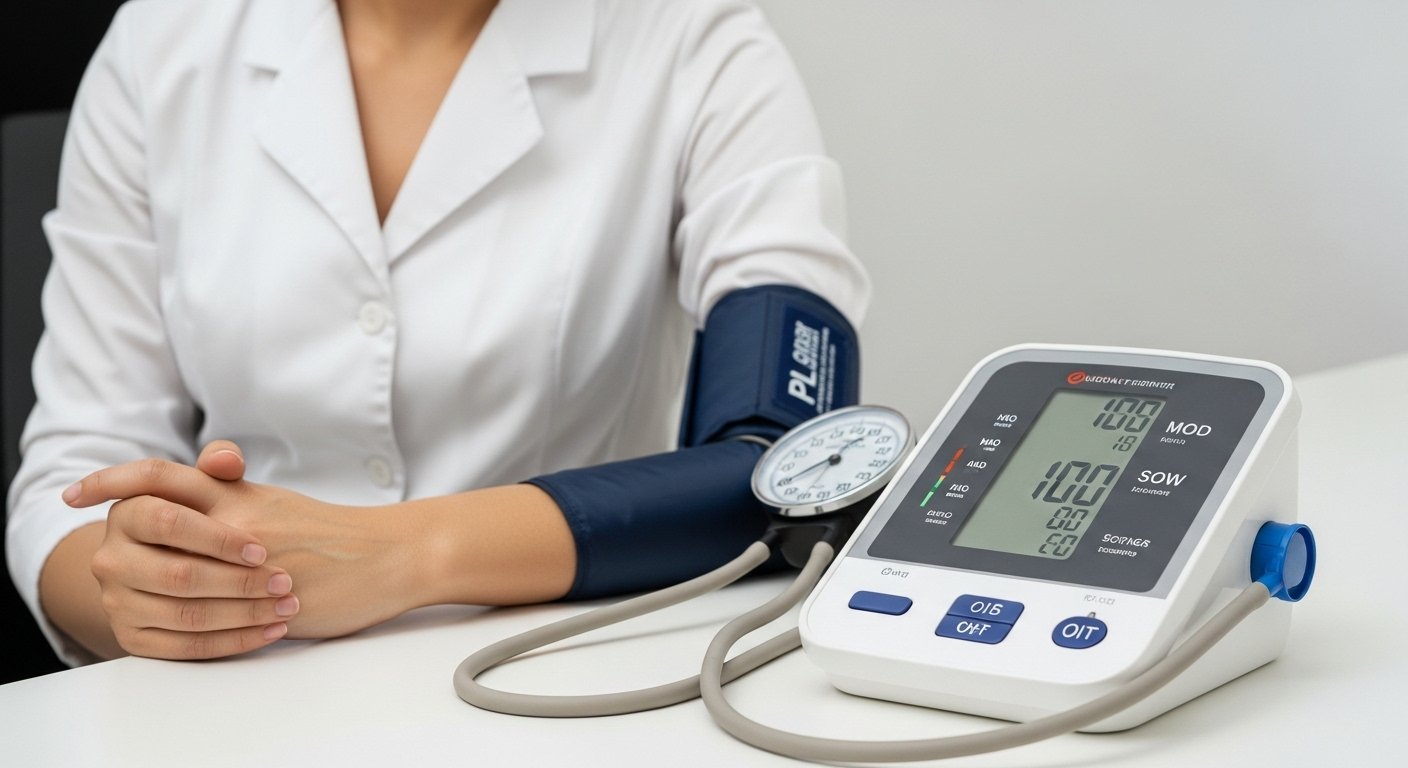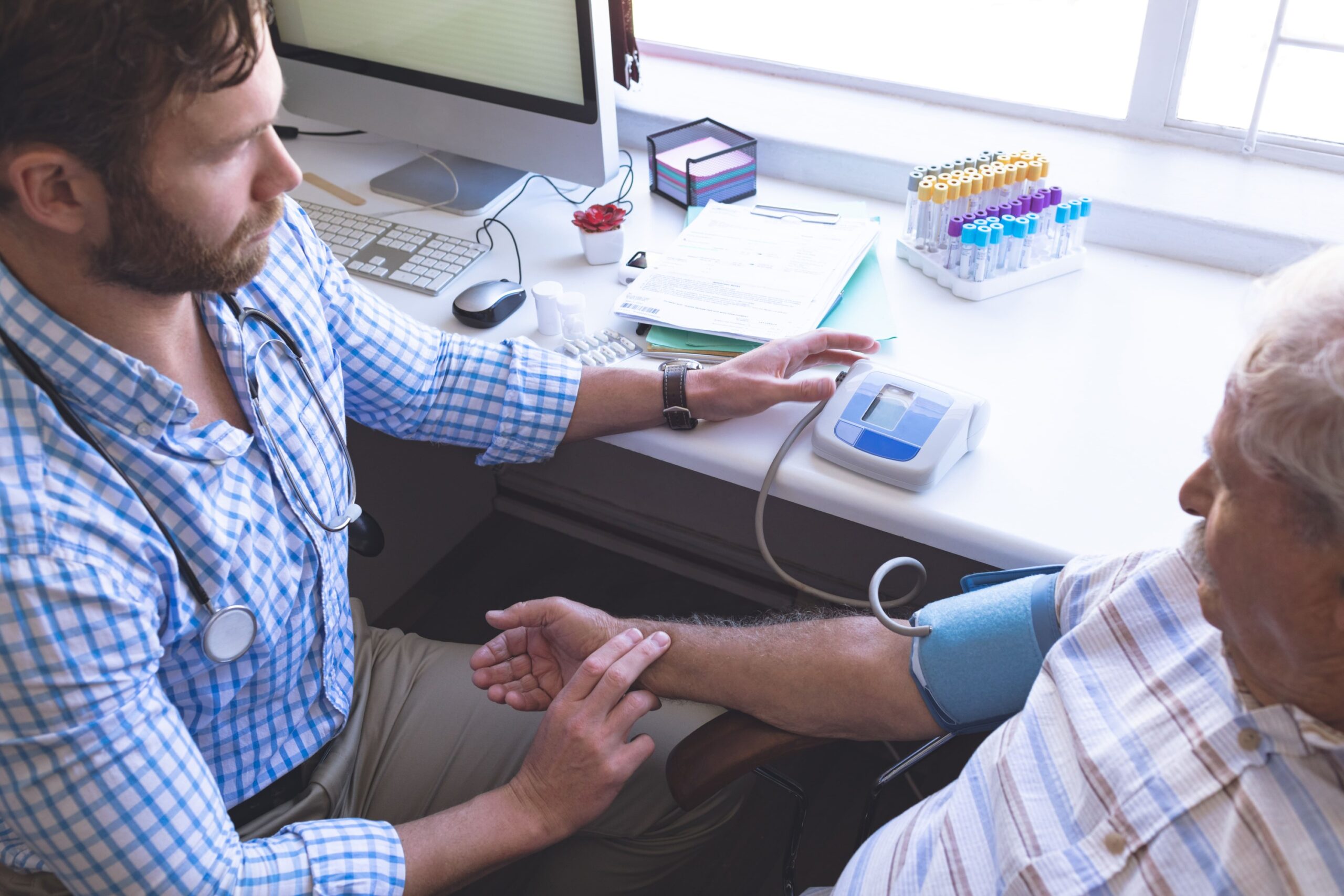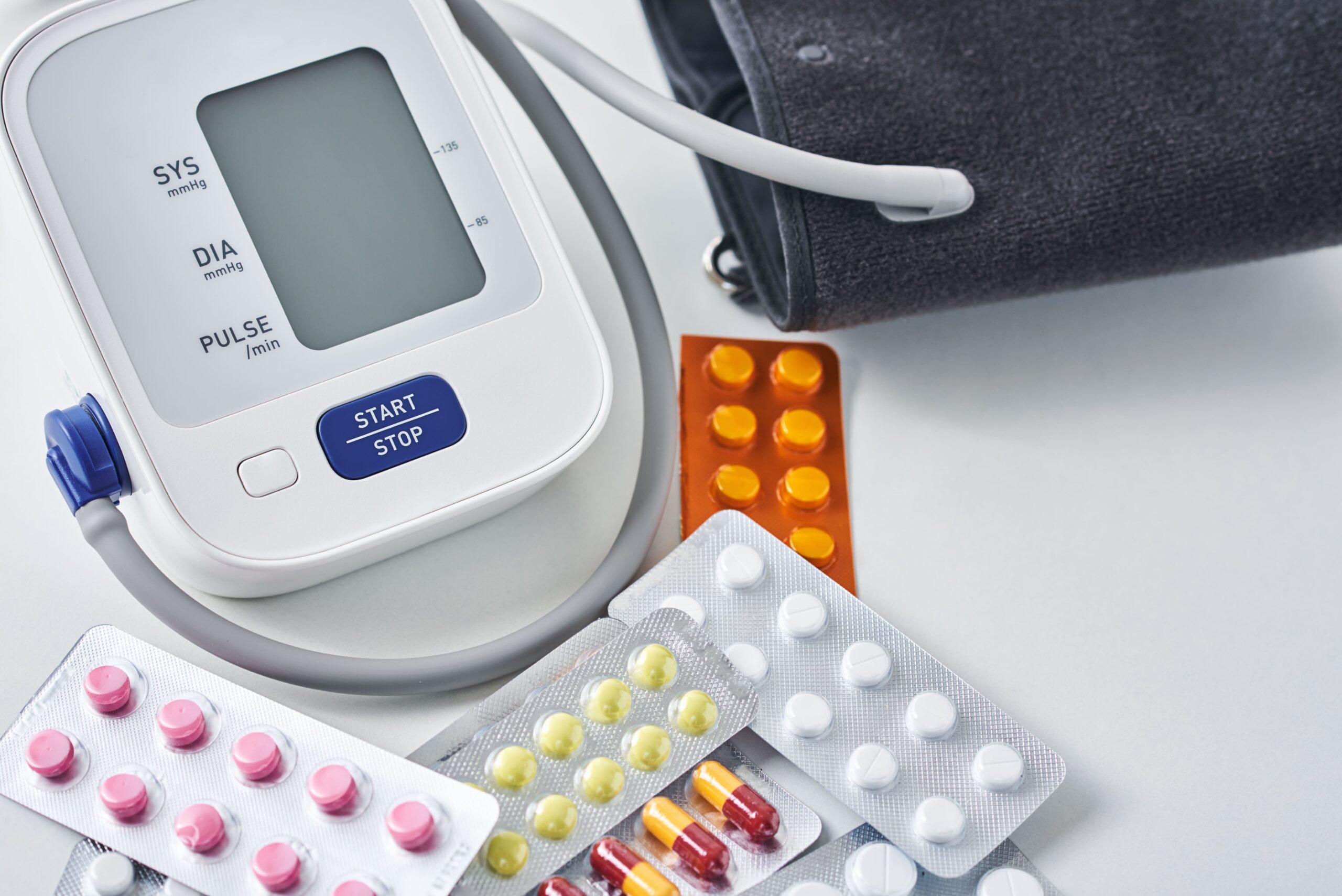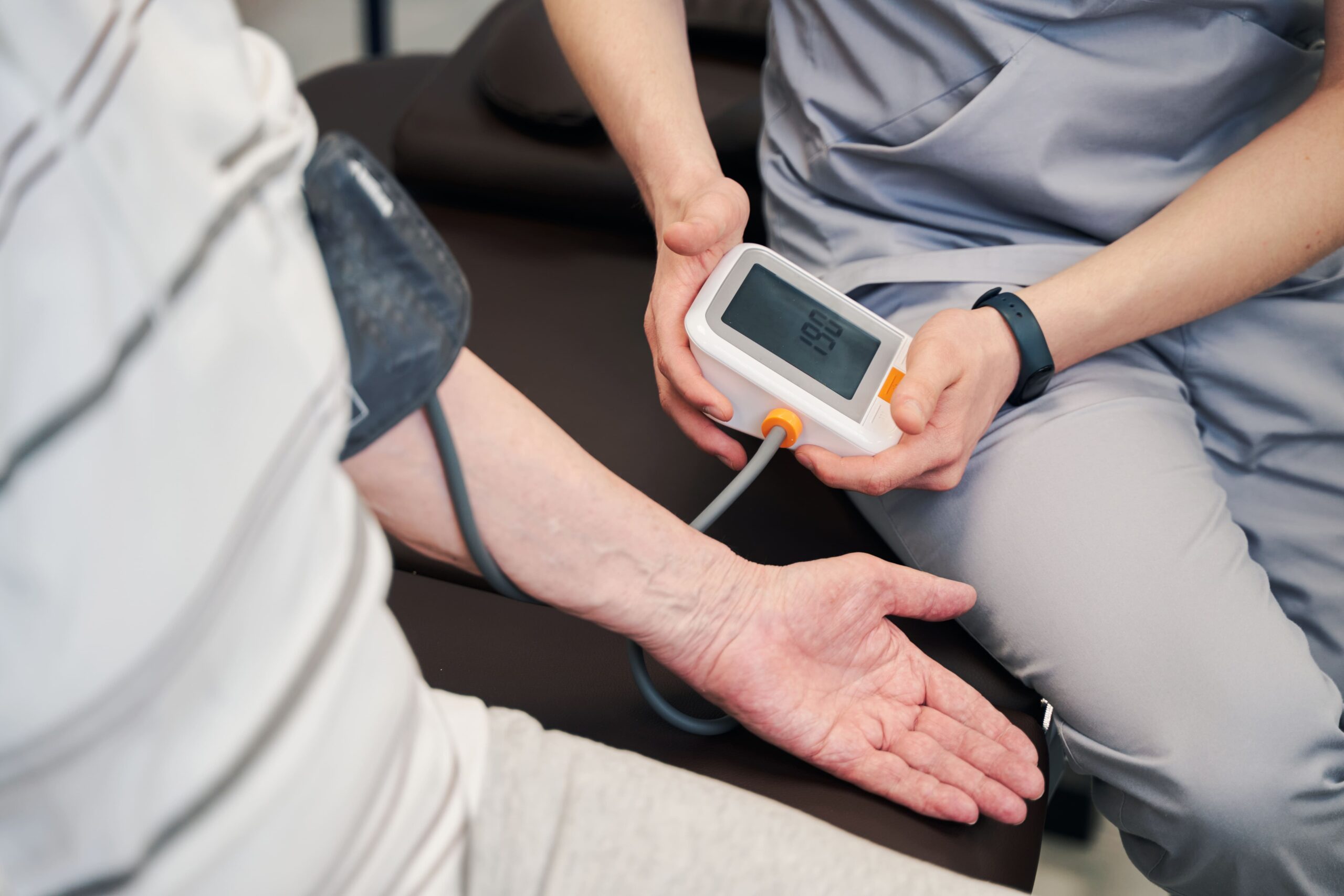Meta Title: Choosing the Right Specialist for Hypertension Care in Singapore
Meta Description: Learn when to see a specialist for hypertension care in Singapore, what to expect during consultation, and how specialized care improves blood pressure control.
Blood pressure readings above 140/90 mmHg on multiple occasions indicate hypertension, a condition requiring careful medical management. While general practitioners manage uncomplicated cases effectively, certain situations warrant specialized care from a hypertension specialist. Dr. Mondry, an internal medicine physician with focused expertise in hypertension management, provides comprehensive evaluation and treatment for complex blood pressure disorders at his Singapore clinic.
Hypertension specialists undergo additional training beyond general internal medicine, focusing on blood pressure regulation mechanisms, secondary hypertension causes, and complex medication management. This specialized knowledge becomes particularly valuable when standard treatments fail to achieve target blood pressure levels or when hypertension occurs alongside other medical conditions.
When General Practice Isn’t Enough
Primary care physicians successfully manage many hypertension cases through lifestyle modifications and standard medications. However, specific scenarios indicate the need for specialized expertise. Resistant hypertension, defined as blood pressure remaining above target despite three different medications at optimal doses (including a diuretic), requires specialist evaluation to identify underlying causes and adjust treatment strategies.
Young adults under 30 with hypertension need thorough investigation for secondary causes, as primary hypertension rarely develops at this age. Similarly, sudden onset of severe hypertension in previously healthy individuals suggests an underlying condition requiring specialized diagnostic workup. Blood pressure readings consistently above 180/110 mmHg, classified as hypertensive urgency or emergency, demand immediate specialist attention to prevent organ damage.
Patients experiencing significant medication side effects or those with hypertension complicated by kidney disease, heart failure, or diabetes benefit from a specialist’s expertise in balancing multiple treatment considerations. Pregnancy-related hypertension also requires specialized monitoring and management to protect both mother and baby.
What Sets Hypertension Specialists Apart
Internal medicine physicians specializing in hypertension possess comprehensive knowledge of cardiovascular physiology and the complex interactions between blood pressure and other organ systems. This expertise enables them to identify subtle secondary causes of hypertension that general practitioners might miss, such as primary aldosteronism, pheochromocytoma, or renovascular disease.
Specialists utilize diagnostic techniques including 24-hour ambulatory blood pressure monitoring, which reveals blood pressure patterns throughout daily activities and sleep. This comprehensive data helps distinguish true hypertension from white coat syndrome and identifies nocturnal hypertension, a significant cardiovascular risk factor often missed by office readings alone.
The specialist’s experience with antihypertensive medications allows for sophisticated treatment strategies. They understand drug interactions, can combine medications synergistically, and know when to use less common but potentially more effective agents.
💡 Did You Know?
Nocturnal blood pressure patterns provide information about cardiovascular risk. Normal blood pressure drops 10-20% during sleep, and absence of this “dipping” pattern indicates increased risk of heart disease and stroke, detectable only through 24-hour monitoring.
Dr. Mondry’s Approach to Hypertension Management
Dr. Mondry begins each consultation with a comprehensive medical history, examining not just blood pressure readings but also family history, lifestyle factors, and previous treatment responses. Physical examination includes careful assessment for signs of end-organ damage and secondary hypertension causes. Initial laboratory tests typically include kidney function, electrolytes, lipid profile, and urinalysis, with additional specialized tests ordered based on clinical suspicion.
The diagnostic process often incorporates ambulatory blood pressure monitoring to capture readings throughout a typical day. For suspected secondary hypertension, Dr. Mondry may order hormonal studies, imaging of renal arteries, or other targeted investigations. This systematic approach ensures accurate diagnosis and appropriate treatment planning.
Treatment plans developed by Dr. Mondry address both immediate blood pressure control and long-term cardiovascular risk reduction. He considers each patient’s specific circumstances, including age, comorbidities, medication tolerances, and lifestyle factors when selecting treatments. Regular follow-up appointments allow for treatment optimization based on response and any emerging side effects.
Diagnostic Capabilities
Modern hypertension management relies on sophisticated diagnostic tools beyond the traditional blood pressure cuff. Twenty-four-hour ambulatory monitoring provides around 70-80 readings over a full day, revealing patterns invisible during brief office visits. This technology identifies masked hypertension (normal office readings but elevated home readings) and white coat hypertension (elevated office readings but normal home readings).
Home blood pressure monitoring protocols taught by specialists ensure accurate self-measurement technique. Proper positioning, cuff size selection, and timing of measurements significantly impact reading accuracy. Dr. Mondry provides detailed instruction on home monitoring, enabling patients to contribute meaningful data to their treatment plans.
Blood tests can identify subtle hormonal imbalances causing hypertension. Plasma aldosterone-to-renin ratio screening detects primary aldosteronism, while plasma or urine metanephrines identify pheochromocytoma. These conditions, though uncommon, are potentially curable causes of hypertension that general screening might miss.
⚠️ Important Note
Blood pressure measurement technique significantly affects readings. Incorrect cuff size, improper arm position, or talking during measurement can cause falsely elevated readings, potentially leading to unnecessary treatment.
Treatment Options Beyond Standard Medications
While ACE inhibitors, ARBs, calcium channel blockers, and diuretics form the foundation of hypertension treatment, specialists access a broader therapeutic arsenal. Fourth and fifth-line agents like spironolactone, beta-blockers, and centrally acting medications provide options when standard combinations fail. Dr. Mondry’s expertise includes knowing when these alternatives offer advantages for specific patient profiles.
Combination therapy strategies maximize blood pressure reduction while minimizing side effects. Fixed-dose combinations improve medication adherence by reducing pill burden. Dr. Mondry carefully selects combinations based on complementary mechanisms of action and individual patient factors.
Non-pharmacological interventions receive equal attention in specialized care. Structured lifestyle modification programs, including specific dietary approaches like DASH (Dietary Approaches to Stop Hypertension), weight management strategies, and exercise prescriptions tailored to individual capabilities, form integral parts of comprehensive treatment plans.
Managing Complex Cases
Patients with multiple medical conditions require careful coordination of treatments. Diabetes and hypertension frequently coexist, demanding medications that benefit both conditions while avoiding those that worsen glycemic control. Kidney disease complicates medication selection and dosing, requiring expertise in nephrology-hypertension interactions.
Elderly patients present unique challenges due to altered drug metabolism, increased fall risk with aggressive blood pressure lowering, and multiple concurrent medications. Dr. Mondry applies age-specific treatment targets and carefully monitors for orthostatic hypotension and cognitive effects of treatment.
Young women with hypertension need special consideration regarding pregnancy planning. Many antihypertensive medications pose risks during pregnancy, necessitating preconception counseling and medication adjustment. Dr. Mondry provides guidance on safe medication options and optimal blood pressure control before and during pregnancy.
✅ Quick Tip
Measure blood pressure at the same time each day, after 5 minutes of quiet sitting, with feet flat on the floor and arm supported at heart level for consistent, accurate readings.
Long-term Monitoring and Prevention
Hypertension management extends beyond achieving target blood pressure to preventing cardiovascular complications. Regular monitoring includes not just blood pressure but also assessment of target organ function through periodic kidney function tests, electrocardiograms, and evaluation for left ventricular hypertrophy.
Dr. Mondry implements structured follow-up protocols based on individual risk profiles. Newly diagnosed or poorly controlled patients require frequent visits until stability is achieved, while well-controlled patients may need only quarterly assessments. Each visit includes medication review, side effect assessment, and reinforcement of lifestyle modifications.
Cardiovascular risk assessment using validated tools helps guide treatment intensity. Factors including age, smoking status, cholesterol levels, and diabetes status influence overall risk and treatment targets. This comprehensive approach ensures that blood pressure management aligns with broader cardiovascular disease prevention strategies.
Commonly Asked Questions
How do I know if I need a hypertension specialist rather than my GP?
Consider specialist referral if your blood pressure remains above target despite three medications, you’re under 30 with high blood pressure, you experience significant medication side effects, or you have hypertension with kidney disease, heart disease, or diabetes. Sudden severe hypertension or blood pressure that fluctuates widely also warrants specialist evaluation.
What should I bring to my first appointment with Dr. Mondry?
Bring all current medications, recent blood test results, and any home blood pressure readings from the past month. Previous ECGs, echocardiograms, or other cardiac tests provide valuable baseline information. A family history of hypertension, heart disease, or stroke helps assess genetic risk factors.
How often will I need follow-up appointments?
Follow-up frequency depends on blood pressure control and treatment complexity. Initially, appointments may occur every 2-4 weeks during medication adjustment. Once stable, visits typically occur every 3-6 months. Home monitoring between visits provides ongoing assessment of treatment effectiveness.
Can hypertension be cured, or will I need medication forever?
Secondary hypertension caused by specific conditions like adrenal tumors or renal artery stenosis may be curable through targeted treatment. Primary hypertension typically requires long-term management, though significant weight loss, dietary changes, and exercise can sometimes allow medication reduction or discontinuation under medical supervision.
What’s involved in 24-hour blood pressure monitoring?
You’ll wear a portable monitor with an arm cuff that automatically inflates every 20-30 minutes during the day and hourly at night. Continue normal activities while keeping a diary of activities, meals, and sleep times. The device records approximately 70-80 readings, providing comprehensive blood pressure patterns for analysis.
Next Steps
Effective hypertension management requires ongoing partnership between patient and physician. Dr. Mondry’s specialized expertise in internal medicine and hypertension provides the comprehensive care needed for complex cases, medication-resistant hypertension, and blood pressure management alongside other medical conditions. His systematic approach combines diagnostics, personalized treatment plans, and regular monitoring to achieve optimal blood pressure control and reduce cardiovascular risk.
If you’re experiencing difficulty controlling blood pressure despite multiple medications, sudden onset of severe hypertension, or high blood pressure complicated by other medical conditions, our MOH-accredited specialist for hypertension care in Singapore can provide comprehensive evaluation and treatment options.




